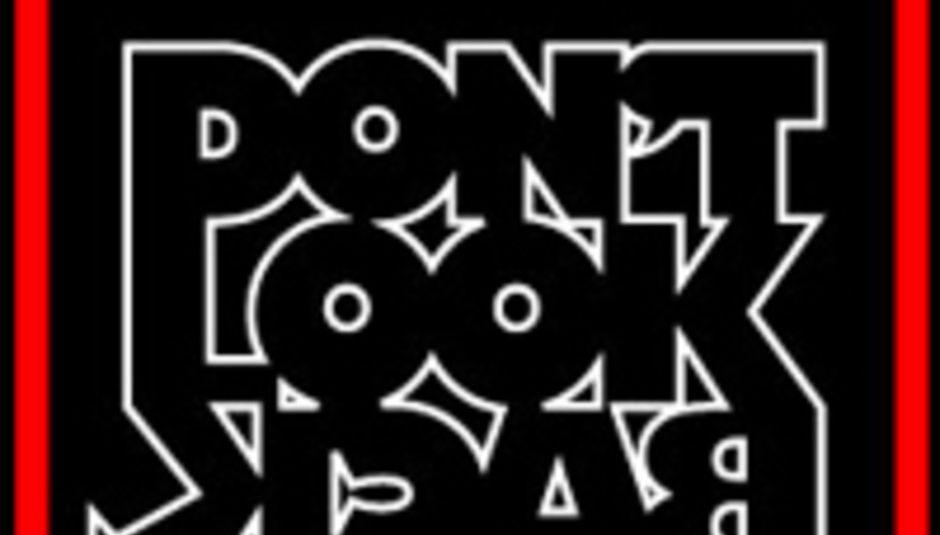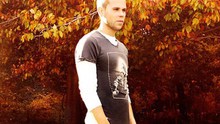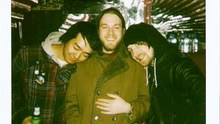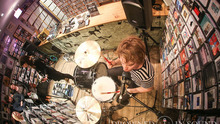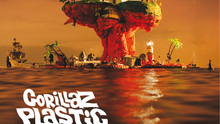Artistically the stigma of the reformation, once seen as the last refuge of the musical scoundrel, seems to have passed. Rock ‘n’ Roll as an art form (in all its myriad permutations) is now 50-plus years old and heading for its bus pass. It has seen in its life countless comebacks, but only recently has the ‘underground’ or alt-rock scene that grew up in the 1980s reached the age where the idea of ‘getting the band back together’ seems like the next logical step or indeed financial necessity. However, for this generation of rockers it feels slightly different: few of those involved could be said to have made huge fortunes from their careers, and comfortable though some may be, most still work.
Musically influential they certainly were, but ultimately the culmination of the decade-long scene was the monumental success and cultural shift of Nirvana (and there is one band that won’t be appearing at Koko in Camden anytime soon). So we are seeing a wee bit of payback here, but who’s complaining? One result of this trend is the ironically titled_ Don’t Look Back _series of shows, created by All Tomorrow’s Parties lynchpin and promoter Barry Hogan.
Now onto its third season of shows and expanding into the US, the simple principle is to take classic artists spanning the last 40 years and get them to play their best-loved and most critically acclaimed albums. This festival of music doesn’t feel like it could have happened ten years ago: the bottom line is that these gigs are amazing! Anyone who witnessed, for example, The Stooges destroying Hammersmith with Funhouse will testify to that. As Hogan states, the only rule is that artists involved must play the albums in question in order, but they are free to expand on the recordings.
“People lose their shit when the Blues Explosion open with _‘Bell Bottoms’ or The Stooges kick off with _‘Down on the Street’!”
- -
The initial idea for the season of shows came to Hogan after seeing Lou Reed perform his album Magic and Loss live. He explains:
“He played the album from start to finish as if you were listening to the LP. I was asked to organise a season at the Barbican and I thought about having a curator select a line-up for the event, but then thought it would be too similar to the Meltdown shows. So I started Don’t Look Back to become like an extension of All Tomorrow’s Parties, where we select the acts.
“I wanted to get some of the best artists known to man to perform albums in the order they were listened to as a record, so a body of work was presented, not like any live gig that you can see anytime. On that premise I started rifling through my records and started to pick out some legendary albums that included The Stooges, Gang of Four and Mudhoney.”
In the end a wish-list was put together, artists were contacted and the line-up came together surprisingly with ease.
“There were a few bands we asked, like Public Enemy, who fell off the radar, but 90 per cent of people embraced the idea and if it was declined it was because of either recording or live commitments. This project has been received more favourably than the All Tomorrow’s Parties festival itself initially was.”
Rather than an exercise in pure nostalgia, the series is approached with the intention of highlighting classic albums, as punters would like to hear them.
“These are records that I personally think are great and some which have been heralded as classics,” says Hogan. “But if you listen to Fun House, this is a definite classic record that should always be played in its entirety and every track on it is genius!_
“I doubt there will be a rock band as good as them again. It’s a complete body of work and seeing them perform the whole record in order overcomes those disappointments of wishing to god some band you do love plays your favourite track instead of some new stuff you are not feeling. Don't Look Back is striving to present great records, be they old or new.”
Steve Turner of Mudhoney recalls his reaction to being asked to play their seminal grunge album, Superfuzz Bigmuff: “I thought wow! We’re an oldies band now. But sure it sounded fun. There’s a reason most people like the earliest stuff from a rock band like ours. Youth, enthusiasm, stupidity et cetera all make for good rock and roll.”
Hogan is at pains to point out that this is not the bookmark to bands’ careers, or a final hurrah.
“A couple of bands felt we were trying to tell them that their new material is shit, and that we were trying to indicate that they were great once. I personally don't agree with those bands - who shall remain nameless - because this is celebrating a particular piece of work.”
Whilst not exclusively catering to a 30-something alt-rock revival, the series certainly caters perfectly to the gig-going masses tempted out by a night of nostalgia and the opportunity to hear great albums from their school years played from start to finish.
Whilst bands like Sonic Youth, Mudhoney and Melvins, for example, have never stopped recording and touring and continue to make some of the best music of their careers it is fair to say that, as their members approach and pass their 40th birthdays, the days of front covers in the weekly music press is well and truly behind them. Youth, enthusiasm and stupidity still sell papers, too.
- -
Another example is the original, classic line up of Dinosaur Jr and their unlikely re-animation. The trio of J Mascis, Lou Barlow and Patrick ‘Murph’ Murphy, who for so long conducted a simmering feud through the press, set aside their differences, with the help of Barlow’s mother as mediator no less, and returned to play a hugely lauded set of shows a few summers back in Europe and the US, playing tracks from their first three recently re-released albums. This expanded to several tours, festival appearances, well-received new material in their Beyond album and supports with Red Hot Chili Peppers.
Their Scala show in London earlier in the year saw a band not only matching the power (and volume) of their late-‘80s heyday but surpassing it in terms of simple entertainment value, whilst their performance of their classic You’re Living All Over Me album for ATP’s _Don’t Look Back was one of the highlights of the series to date. Where 15-plus years ago the typical Dinosaur Jr show was marked by interminable periods of tuning up, short sets and barely concealed contempt between the three members, the reformation shows were joyous occasions and a celebration of the great bands early output.
Lou Barlow, original bass player of Dinosaur Jr and chief songwriter in Sebadoh, Folk Implosion and a host of side projects, is philosophical about the_ Don’t Look Back _experience.
“It’s good for fans, and a pain in the ass logistically for bands. There are inevitably songs that - once recorded - were never performed live, perhaps because the song(s) only worked in the studio.”
However, back on the festival circuit at times their brand of hardcore-infused classic sludge-rock stands out now as much as it did back in the 1980s. Often billed playing stages adjacent to those filled with the current crop of identikit post nu-metal shock rockers and this month’s Libertines and Franz Ferdinand clones (young enough in some cases to be their offspring) the band faced audiences made up of some old fans but primarily new festival goers who seemed bemused by the sight of ‘old dudes’ rocking hard. Tellingly, as the band members have stated in online web postings, to their own amusement they realized that they were often the only tattoo-free band playing on the bill. Small cultural differences speak volumes.
Barlow notes: “Dinosaur Jr is LOUD, and that seems to legitimise us. But we’re ultimately playing to teenagers gripping the barriers waiting for Kings of the Razor Fighters.”
Those spiritual and geographical brothers in arms to The Stooges, the remaining members of MC5, have similarly returned to the live stage. With key members Rob Tyner and Fred ‘Sonic’ Smith sadly deceased, the vocalist and second guitar roles have fallen to a selection of alt-rock and punk luminaries. The band trades as the DTK3, (after surviving members Michael Davis, Dennis Thompson and Wayne Kramer) and employs a succession of singers and lead guitarists to fill in for their fallen comrades. Mark Arm of Mudhoney, David Thomas of Pere Ubu, Lisa Kekaula of The Bellrays and ‘Handsome’ Dick Manitoba of the Dictators have all stepped up to the microphone. No one is being as bold as to say these are MC5 reunion show; they’re more like celebrations of the spirit and influence of the band.
- -
For Slint, the handful of dates played in the UK and the US were initially a bookmark and closure to a career that saw them elevated to post-rock Gods in absentia. Tweez (1989) and Spiderland (1991), their two pioneering albums for Chicago label Touch & Go, were seized upon by a generation of guitar-wielding, callow youths from LA to Lapland.
Though the albums were always in print and with members such as Dave Pajo going on to find success with Tortoise and then as a solo artist and drummer Britt Walford playing with the Breeders, it was their teenage band’s output that continued to spark interest. The shows were revelatory: a rapt Forum in Kentish Town two years ago watched as three of the original members worked their way through the band’s small repertoire. Little was said on stage and indeed off it: the band declined all offers of interviews. After playing their final shows their intentions to not continue were clearly expressed as the period equipment that was carefully pieced together to replicate their sound live was symbolically sold off on eBay. Thank you and goodnight indeed! It therefore came as some surprise to see them appearing again on bills for ATP shows, and all the more surprising to hear talk of new material.
In a less successful outing Los Angeles-based hardcore punk pioneers Black Flag bizarrely returned after nearly 20 years apart for two controversial Henry Rollins-free gigs in 2003. The shows, organised by founder member and only mainstay through the band’s career Greg Ginn, were benefits for a local Cats Protection charity. Planned guest vocalists failed to turn up, arguments over payments raged, the animosity between Ginn and Rollins meant the muscle-bound singer who held the microphone through the band’s most successful period was not invited, and the total lack of a bass player (a backing track was used) equalled an oddly muted event.
Black Flag helped create the touring circuit that enabled the alternative scene to thrive and find an audience through the 1980s and for many the half-baked reunion was a blight on their memory, however noble the cause may have been.
Barry is clear who, in an ideal world, he would like to see participate next: “My Bloody Valentine doing Loveless or Neil Young doing On the Beach.”_
Nothing, it seems, is out of the question, and with some of the most unexpected re-groupings having occurred in the last couple of years you’d be mad to bet against some more of the heroes of the indie-rock scene putting aside their differences and emerging to join the reformation circuit. Hüsker Dü anyone? As the Gang Of Four - a huge influence on the US alt-rock scene who have re-grouped to play their debut album for Don’t Look Back - state, it is after all just Entertainment.
Isn’t it?
For a rather different take on the DLB experience, why not read Kev Kharas' review of Sonic Youth's _Daydream Nation show here, 'case you've not already given it a slagging._

